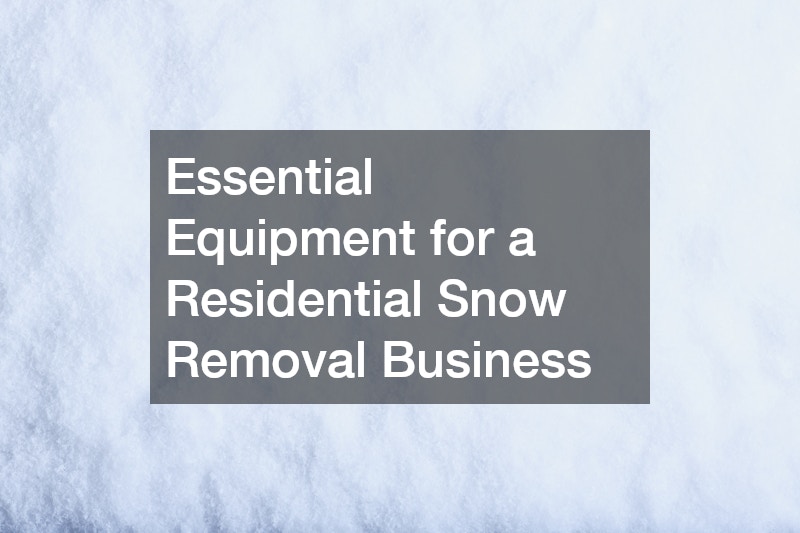Small businesses are under unique pressure during the pandemic. Unlike large corporations, small businesses usually do not have a rainy day fund to weather an extended economic shutdown or slow down.
In fact, many small businesses are heavily reliant on cash flow and revolving lines of credit to pay for their operating expenses. When revenues drop or dry up, the business is at risk of failure. This risk is particularly high for new businesses. According to Business Insider, about half of new businesses in the U.S. fail during their first five years.
During an extraordinary crisis like a global pandemic, small businesses have little to no margin for error. Here are ten business tips for small business owners in the era of COVID-19 (coronavirus):

Minimize Exposure
Even though lockdowns and shutdowns have largely ended, small business owners should not assume the worst is past us. Customers will continue to be wary of doing business in person, whether it be shopping, meeting, or receiving services.
One of the business tips for small business owners is to be creative so you can deliver goods and services while minimizing contact. Your business’s solution to this problem will depend on your goods or services. In some cases, you will be able to follow the lead of other businesses. For example, if your business sells food, online ordering, delivery, and contactless pickup can be used to accommodate your customers.
For other businesses, there is no model to follow and you will need to create one. For example, businesses that provide personal services, like hair and nail salons, require some personal contact. However, it will be up to you to find a way to deliver these services while minimizing the risk to you, your customers, and your employees. Other businesses, like home improvement, garage door repair, remodeling, plumbing, and other home repair business may need to take extra precautions to prevent spreading or contracting the virus.
For example, having customers pay and tip using a payment app offered by the various credit card processing companies will minimize your contact with cash. Similarly, spacing customers from each other and spreading out appointments to allow for cleaning time between customers can also minimize contact.
Remember, while these might reduce the amount of customers you can serve, the will also reduce the risk of an outbreak that could shut down your business. Moreover, these measures will help you to fulfill your moral duty to protect the health of your customers and workers.
Avoid Legal Disputes
The current business environment is radically different from anything most business owners have experienced. The shutdowns and lockdowns placed many businesses in suspended animation even though their creditors and vendors still needed to be paid. Moreover, businesses face new legal challenges that many are unprepared to address.
Despite their reputation for seeking conflict, one of the key business tips for small business owners from business attorneys is to avoid disputes as much as possible. In some cases, this will not be possible. However, many business owners are surprised by what can be accomplished with some deft negotiation.
For example, if you have fallen behind on your office rent, ducking calls from your landlord or property manager could force them to evict. However, acting proactively to explain the situation and negotiate a solution can help both parties.
An eviction and finding a replacement tenant costs the landlord time and money. Moreover, eviction lawsuits give tenants an opportunity to point out any breaches of the lease by the landlord. For example, if the landlord failed to fix a plumbing leak or clean common areas, a tenant might be entitled to terminate the lease or even receive a rent refund, depending on the terms of the lease and the state’s property rental laws. Consequently, many are willing to defer or even discount rent to avoid these costs.

Maintain Compliance
In addition to avoiding lawsuits, one of the most important business tips for small business owners is to maintain compliance to the maximum extent possible. This means that you should observe any general business law that applies to your business or contact the agency responsible for enforcement if compliance is not possible.
Small businesses have many laws and regulations they have to comply with:
- Business licensing: Make sure your business license is up to date and did not expire during the shutdown.
- Professional licensing: Lawyers, real estate agents, cosmetologists, and other licensed professionals should check the status of any professional licenses to make sure they are current.
- Taxes: Pay any taxes that were due during the business shutdown. If your business cannot meet its tax obligations, contact your taxing authority to see if you can be put on a payment plan so you do not receive a tax demand letter.
- Insurance: Most businesses are required to maintain workers compensation insurance. Many businesses are required to maintain liability insurance. Make sure any premiums are paid or that insurance companies know that you were shut down. Some insurers can offer an insurance premium reduction if your business was temporarily closed.
- Filings: Some businesses are required to file periodic reports with regulatory agencies. For example, retail businesses in many states and cities must file sales tax reports even if the business was closed and had no taxable sales. Ensure these reports are filed on time.
Develop a Budget
You might already work with a commercial accountant for your small business’s finances. However, your financial state might be very different in the era of COVID-19. As a result, one of the key business tips for small business owners today is to bring your budget projections up to date and realistically determine how you will stay in business.
This budget should take account of additional expenses that you will be required to shoulder as a result of the pandemic. For example, you may need to supply employees with personal protective equipment (PPE) like masks and gloves. Similarly, you might need to subsidize Internet service and computers so employees can work from home.
Likewise, your revised budget will need to revise revenue estimates. Most businesses will see a drop off in revenue from a general economic slowdown. However, some businesses might see an even greater drop off due to the nature of their business. For example, entertainment venues, bars, restaurants, nail salons, and hair salons will be subject to limits on the number of customers they can serve on-premises. As a result, revenues will be artificially capped based on the customer limits.
Once you have a realistic budget, you may need to make a difficult decision to shut down, seek funding, or participate in a government assistance program.

Get Assistance
If your small business requires assistance to continue, one of the important business tips for small business owners is to seek out some of the programs offered by U.S. and state governments. States have offered assistance in the form of tax holidays and other programs to reduce the impact of shutdowns on small businesses.
The U.S. government has offered programs that can place money directly into a business’s bank account. The two best-known programs are:
- Paycheck Protection Program (PPP): PPP is a program that is administered by banks and backed by the U.S. Small Business Administration (SBA). Under this program, qualified businesses receive a loan equal to two and a half months of payroll. The loan is 100% forgivable if the loan funds are used for payroll or other authorized expenses.
- Economic Injury Disaster Loan (EIDL): EIDL is a disaster loan that is offered by the SBA to help businesses recover from disasters. Since a disaster declaration was made in every state for the pandemic, this loan is available to almost every small business in the U.S. Significantly, part of the loan is treated as a grant that need not be repaid. The balance of the loan is subject to a low-interest rate and can be repaid over a term up to 30 years.
If you take one of these loans, make sure you comply with federal laws. Specifically, make sure that you meet all the restriction on how the loan funds can be used or you might risk losing the loan forgiveness for PPP or the favorable terms for EIDL.
Focus on Your Core Business
Businesses sometimes branch out into new areas of business when times are good. This risk-taking is sometimes rewarded, but even when these expansions fail to pan out, a business can always fall back onto its core business.
However, many business owners have not experienced a recession. The recently-ended economic expansion was the longest in U.S. history at nearly 11 years. This produced an entire generation of business owners who only operated in a growing economy.
One of the business tips for small business owners from more experienced small business owners is to consolidate and focus on your core business. In other words, now is not the time to take risks. Instead, cut unnecessary business endeavors that do not produce revenue. Refocus your marketing messages in your advertising and web design to emphasize what you are good at and the value proposition you present to customers.
By putting your efforts into what brings money into the business you may able to weather the downturn and might even be able to grow despite the downturn.

Continue Networking
For many businesses, networking is the single greatest source of new customers. Before the pandemic, meeting potential customers at trade shows and handing them a business card was easy. Now that most trade shows and industry events are on hold, you might believe that networking is dead.
However, one of the key business tips for small business owners is to always network. Network contacts might not just provide you with customers. They might tip you off to a good vendor or steer a standout job candidate to you.
You may need to adjust how you network in the age of COVID-19. You might need to investigate social networking platforms, for example. Additionally, you might participate in industry teleconferences and seminars that allow remote attendance. If you are truly ambitious, you might even host a virtual industry event so attendees can update each other on their approaches to the pandemic and network with one another.
Engage in Smart Marketing
It is tempting to reduce your marketing efforts during an economic downturn. You might believe that since there are fewer customers, you need to spend less money on marketing. This strategy may be penny-wise, but pound foolish for a few reasons:
- With fewer customers there is even greater competition, not less competition, for their business.
- You need to maintain your presence for after the economy recovers. You do not want potential customers to think that you went out of business.
- Existing customers and their repeat business must be retained. Maintaining top of mind awareness is key to customer loyalty.
Rather than thinking in terms of gross expenditures, consider your return on investment (ROI). Smart marketing targets the most likely sources of business rather than mass marketing to people who will never become customers. By focusing on your most promising leads, you will increase your ROI which should, in turn, pay for your targeted marketing.
For example, the cost of a third-party web developer is relatively low compared to the number of leads you can reach online. Going a step further, optimizing your website with search engine optimization can increase the likelihood that potential customers will find it. These forms of smart marketing can improve your marketing ROI by generating more leads and converting more of those leads into paying customers.

Build Your Brand
One of the most important business tips for small business owners is to take every opportunity to build your brand. Your brand is the shorthand that the consuming public uses to identify your goods and services. Strong brands can evoke an entire customer experience with a logo or a name. For example, a customer needs nothing more than the sight of golden arches to understand exactly what to expect from the attached fast food restaurant.
Brand building is the same whether you are building a company brand or a personal brand. You must use a distinctive identifier, such as a design, name, color scheme, building design, or signage, so that consumers can come to immediately recognize your brand. Equally importantly, you must tie that identifier to the characteristics that make your business unique. The goal is that when a consumer sees your identifier, those brand characteristics immediately come to mind.
Innovate
There are often two reactions to business adversity — hide from it or use it. If business is slow due to an economic slowdown, use the time profitably to plan for economic recovery. A recession might not be the time to take risks, but it may be the right time to put all the pieces into place so that risks can be taken when the economy improves.
Business coaches often advise their clients not to waste time because time is the one thing you cannot recover. Spending a shutdown doing nothing will result in nothing. However, spending the time gaining knowledge, planning for the future, and even beginning to put those plans into motion can be one of the most important business tips for small business owners facing a recession.
There are many more business tips for small business owners in the era of COVID-19. Understanding that the pandemic will require changes, but embracing the challenge can help your business survive and even thrive.





